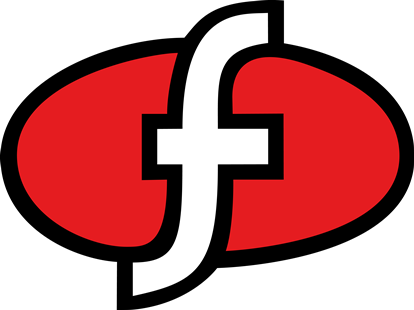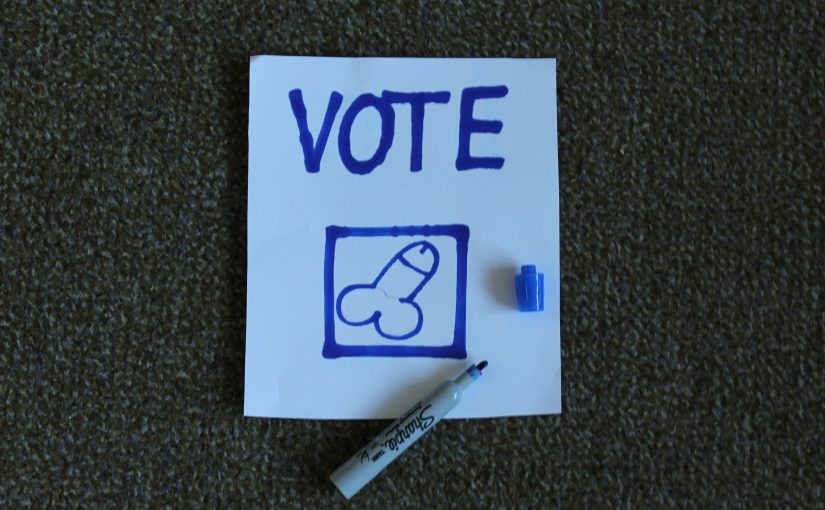It doesn’t matter who’s on the student council, they don’t do anything. I’m sick of the stupid flag debate, we don’t even get a vote. My vote wouldn’t make a difference anyway.
As a 17 year old, I have identified with all of these statements at some point in my life. That’s atrocious. We’ve all been there: student representative elections come up at school, we listen to candidates making promises – returning the vending machines and an artificial turf on the field – that will be broken like glass. What’s the point? It’s not like anything’s actually going to change. Inevitably, because it’s so hilarious, you’ll draw a dick on the voting paper. So what’s the problem? This behaviour isn’t new, it’s typical of teenagers. But it’s dangerous.
I get that some people find politics boring. That’s fine. But what’s not fine is the fact that almost three-quarters of a million people didn’t vote in the 2014 general election – nearly the same number that voted National. 729,560. That’s the population of greater Wellington and Christchurch – combined. What’s even worse is when you look at the breakdown of votes on elections.org, you see that only 63% of 18-24 year olds voted, compared to 88% of 65-69 year olds. So why aren’t the youth of today voting? It goes back to the student council elections at school. Teachers, parents, adults, drill us with information on the importance of our vote, so much so that we turn to a friend across the room, our eyes falling out of our sockets from rolling endlessly. They talk so much their words can’t help but make us rip the ballot paper in apathy.
I’m here with the cellotape. Why, you ask? Because here’s the point: your vote is something to be proud of. Your vote has integrity, and power. If you’re laughing because I’m passionate about student elections, which in the vast existence of human life on earth won’t have any impact (and you’re right), then go ahead. But this is where it starts. It doesn’t matter what it’s for; your vote, and the fact that it’s equal to everyone else’s, is the foundation of democracy. If you don’t use it, then you risk crumbling that foundation. As Plato says: “One of the penalties for refusing to participate in politics is that you end up being governed by your inferiors.” If you don’t want to vote, what you’re asking for is essentially a dictatorship.
It’s so easy to vote in New Zealand. Enrolling is a double-sided page, I filled mine out yesterday! Whether it’s a local council election or a flag referendum, if you’re a New Zealander over the age of 18 you have the right to vote. In microscopic New Zealand – so far removed from everywhere else – we forget that there are people who are denied their chance to have a say in their government. Countries like North Korea. Somalia. Syria. Saudi Arabia only just let women vote for the first time in their December election, a huge leap for equality in a country where women aren’t even allowed to drive.
What about the people who spent their lives fighting for their vote? As a country, we take pride in the fact that we were the first nation where women won their right to vote. Kate Sheppard is a name every New Zealander knows. We put her on our $10 note – in the company of Sir Edmund Hillary and Lord Rutherford – in recognition for all they have given us as a nation, and to inspire us as we buy that sandwich from Subway (it’s healthier than McDonald’s). I can’t imagine what she’d say if she knew what the state of our youth voter turnout was like.
As for those adolescents who didn’t vote last election, what would they do if they weren’t allowed to vote in the next election? Picture it for a moment: the voting age increased to 25 for no other reason than the fact they didn’t use it last time. There would be chaos. The youth generation unable to have a say in their representatives. Oh, the injustice! And when they were allowed to vote again, would they?
Don’t let the damaged ballot paper that you know restrict your opinion of the bigger picture. If you want your voice to be heard, don’t make yourself one of the numerous non-voters.
Vote. Elections aren’t about politicians, and student council isn’t about popularity. It’s about ideas, issues, perceptions. How we want to change things. I don’t care who you vote for (well, I do, but that’s another conversation), as long as you vote, for everything you’re eligible. In October this year, I’ll be voting for the first time in the local council elections, and in 2017, I’ll be voting in the general election.
I’ll see you there.
By Alka Ahirao


